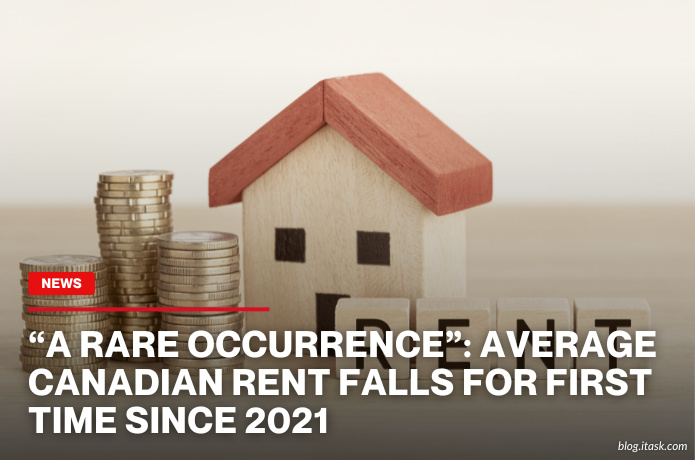“A Rare Occurrence”: Average Canadian Rent Falls For First Time Since 2021
“A Rare Occurrence”: Average Canadian Rent Falls For First Time Since 2021

In a surprising turn, average rent prices in Canada fell year-over-year for the first time since July 2021. Data from Rentals.ca and Urbanation showed a 1.2% decline in October, reversing a consistent upward trend. Experts attribute the drop to economic changes and a record number of new apartment completions, offering some relief to renters.
Toronto and Vancouver, typically known for high rental costs, saw the most significant decreases, with rents falling 9.2% and 8.4%, respectively. Other major cities like Calgary and Montreal also reported lower rents. Meanwhile, smaller cities such as Lloydminster and Saskatoon experienced rent increases as more Canadians sought affordable living options.
This trend is tied to slowing demand in urban centers due to changing immigration patterns, economic pressures, and the rise of shared housing options. Listings for shared accommodations have surged, reshaping the rental market dynamics across the country.
Despite the decline in average rents, affordability varies widely. Vancouver remains the priciest city for renters, even for shared housing, while provinces like Alberta and Quebec offer more affordable alternatives. These differences highlight the uneven impact of rental trends across Canada.
Industry experts, including Urbanation President Shaun Hildebrand, suggest that ongoing apartment construction could maintain this stabilization in rents. However, the full effects will depend on broader economic and demographic factors in the coming months.
This unexpected dip signals a potential shift in the Canadian rental market, with increased supply and evolving renter preferences challenging the relentless rise in housing costs. Renters across the country are watching closely to see if this marks the beginning of a long-term change.
